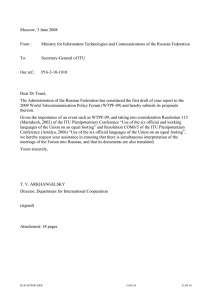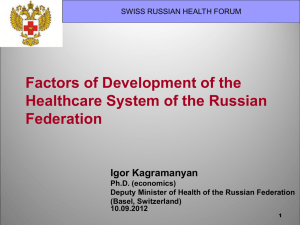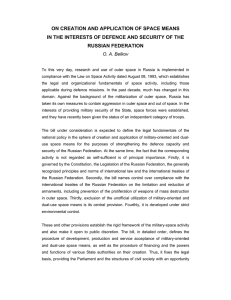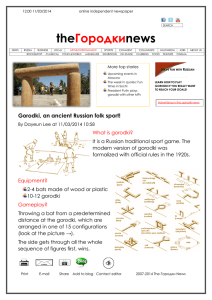THE NATIONAL SECURITY CONCEPT OF THE RUSSIAN FEDERATION O. A. Belkov
advertisement
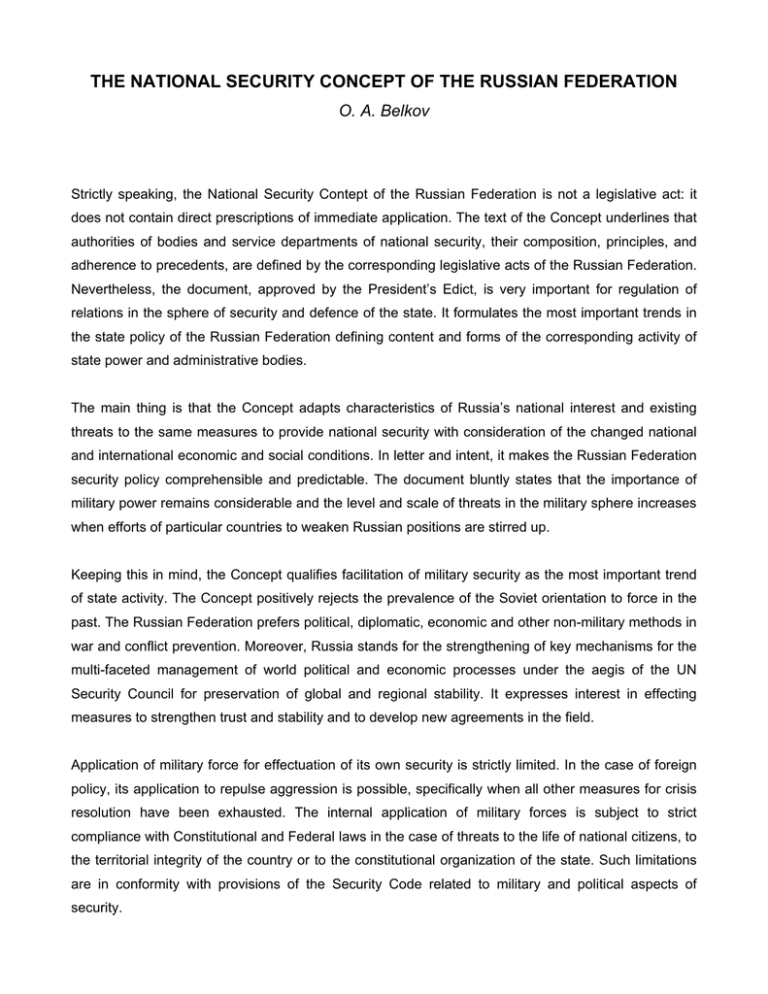
THE NATIONAL SECURITY CONCEPT OF THE RUSSIAN FEDERATION O. A. Belkov Strictly speaking, the National Security Contept of the Russian Federation is not a legislative act: it does not contain direct prescriptions of immediate application. The text of the Concept underlines that authorities of bodies and service departments of national security, their composition, principles, and adherence to precedents, are defined by the corresponding legislative acts of the Russian Federation. Nevertheless, the document, approved by the President’s Edict, is very important for regulation of relations in the sphere of security and defence of the state. It formulates the most important trends in the state policy of the Russian Federation defining content and forms of the corresponding activity of state power and administrative bodies. The main thing is that the Concept adapts characteristics of Russia’s national interest and existing threats to the same measures to provide national security with consideration of the changed national and international economic and social conditions. In letter and intent, it makes the Russian Federation security policy comprehensible and predictable. The document bluntly states that the importance of military power remains considerable and the level and scale of threats in the military sphere increases when efforts of particular countries to weaken Russian positions are stirred up. Keeping this in mind, the Concept qualifies facilitation of military security as the most important trend of state activity. The Concept positively rejects the prevalence of the Soviet orientation to force in the past. The Russian Federation prefers political, diplomatic, economic and other non-military methods in war and conflict prevention. Moreover, Russia stands for the strengthening of key mechanisms for the multi-faceted management of world political and economic processes under the aegis of the UN Security Council for preservation of global and regional stability. It expresses interest in effecting measures to strengthen trust and stability and to develop new agreements in the field. Application of military force for effectuation of its own security is strictly limited. In the case of foreign policy, its application to repulse aggression is possible, specifically when all other measures for crisis resolution have been exhausted. The internal application of military forces is subject to strict compliance with Constitutional and Federal laws in the case of threats to the life of national citizens, to the territorial integrity of the country or to the constitutional organization of the state. Such limitations are in conformity with provisions of the Security Code related to military and political aspects of security. The Concept defines authorities of various state power bodies in forming the security policy according to the democratic principles of power division, which is of a principle importance. “Wide scale participation of political parties and public amalgamations in realization of the Concept of National Security of the Russian Federation” is especially underlined. Yet, mechanisms and forms of such participation have not been stipulated. It is only mentioned that subjects of the Russian Federation along with organs of local self-governing should perform measures to engage citizens from public amalgamations and organizations in providing assistance for solving problems of national security according to legislation of the Russian Federation. It is not hard to understand that the possibility of civil control over activities of the state is quite obscure in the proposed wording.





